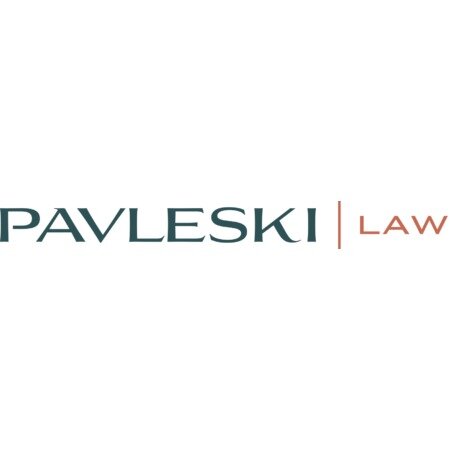Best Marriage Lawyers in Serbia
Share your needs with us, get contacted by law firms.
Free. Takes 2 min.
Free Guide to Hiring a Family Lawyer
Or refine your search by selecting a city:
List of the best lawyers in Serbia
About Marriage Law in Serbia
Marriage law in Serbia is governed by the country's Family Law, which regulates the legal aspects of marriage, divorce, and family relations. The law recognizes marriage as a union between a man and a woman, emphasizing the importance of mutual consent, equality, and the legal obligations that come with such a union. Serbian marriage laws also cover the formalities needed for a legal marriage, rights and duties of spouses, property relations, and conditions related to divorce and annulment.
Why You May Need a Lawyer
There are several situations in which someone might require legal help related to marriage in Serbia. Legal advice is particularly necessary when dealing with complex issues such as prenuptial agreements, divorce proceedings, child custody and support arrangements, division of property, or international marriage disputes. A lawyer can provide valuable guidance to ensure that individual's rights and interests are protected throughout these processes.
Local Laws Overview
Key aspects of Serbian marriage laws include requirements for a valid marriage such as mutual consent, the legal age for marriage, and the necessity of a civil ceremony. The law mandates that any marriage be registered with the appropriate municipal authority. Furthermore, property acquired during the marriage is generally considered joint property, unless stipulated otherwise through a prenuptial agreement. Divorce can be granted on various grounds, including mutual consent or at the request of one spouse, accompanied by proof of irretrievable breakdown of marriage.
Frequently Asked Questions
1. What is the legal marriage age in Serbia?
The legal age to marry in Serbia is 18 years. However, individuals aged 16 and above can marry with parental consent and court approval.
2. Do both partners need to be Serbian citizens to marry in Serbia?
No, only one partner needs to be a Serbian citizen for a marriage to take place in Serbia. Foreign nationals must have the necessary documentation for marriage.
3. What types of marriages are recognized by Serbian law?
Only civil marriages conducted by authorized registrars are recognized by Serbian law. Religious ceremonies can be performed but have no legal standing unless preceded by a civil ceremony.
4. How does property division work in a Serbian marriage?
Assets acquired during the marriage are generally considered joint property and will be divided equitably in case of divorce or annulment, unless otherwise agreed upon in a prenuptial agreement.
5. What is the process for obtaining a divorce in Serbia?
Divorce proceedings can be initiated by either spouse. The court will grant a divorce on grounds of mutual consent or based on evidence of irretrievable breakdown provided by one party.
6. Are prenuptial agreements recognized in Serbia?
Yes, prenuptial agreements are recognized and enforceable in Serbia, provided they are made in writing and notarized prior to the marriage.
7. What is required to register a marriage in Serbia?
To register a marriage, couples need to present valid identification, a birth certificate, and if applicable, proof of divorce or annulment from previous marriages. Foreign nationals may also need additional documents like a certificate of no impediment.
8. Can same-sex couples marry in Serbia?
No, Serbian law currently does not recognize same-sex marriages. However, discussions and proposals regarding the legalization of such unions are ongoing in the country.
9. How are child custody and support determined in a divorce?
Child custody and support are determined based on the best interests of the child. The court will consider factors such as the child's needs, parents' circumstances, and previous arrangements. Child support is typically calculated based on the parent's financial means.
10. Is it possible to annul a marriage in Serbia?
Annulment in Serbia is possible under specific conditions, such as lack of consent, mental incapacity, or when the marriage is not legally recognized due to specific impediments.
Additional Resources
Individuals seeking more information on marriage laws in Serbia can consult various resources such as the Serbian Ministry of Justice, local municipal registrar offices, and legal aid organizations specializing in family law. Additionally, non-governmental organizations and community centers may offer counseling and support services for marital issues.
Next Steps
If you need legal assistance in matters related to marriage in Serbia, it is advisable to consult with a licensed family lawyer who has experience with local laws and procedures. Start by gathering all relevant documents such as marriage certificates, identification, and any prenuptial agreements. Consider making an initial consultation appointment to discuss your specific situation and explore your legal options.
Lawzana helps you find the best lawyers and law firms in Serbia through a curated and pre-screened list of qualified legal professionals. Our platform offers rankings and detailed profiles of attorneys and law firms, allowing you to compare based on practice areas, including Marriage, experience, and client feedback.
Each profile includes a description of the firm's areas of practice, client reviews, team members and partners, year of establishment, spoken languages, office locations, contact information, social media presence, and any published articles or resources. Most firms on our platform speak English and are experienced in both local and international legal matters.
Get a quote from top-rated law firms in Serbia — quickly, securely, and without unnecessary hassle.
Disclaimer:
The information provided on this page is for general informational purposes only and does not constitute legal advice. While we strive to ensure the accuracy and relevance of the content, legal information may change over time, and interpretations of the law can vary. You should always consult with a qualified legal professional for advice specific to your situation.
We disclaim all liability for actions taken or not taken based on the content of this page. If you believe any information is incorrect or outdated, please contact us, and we will review and update it where appropriate.
Browse marriage law firms by city in Serbia
Refine your search by selecting a city.

















